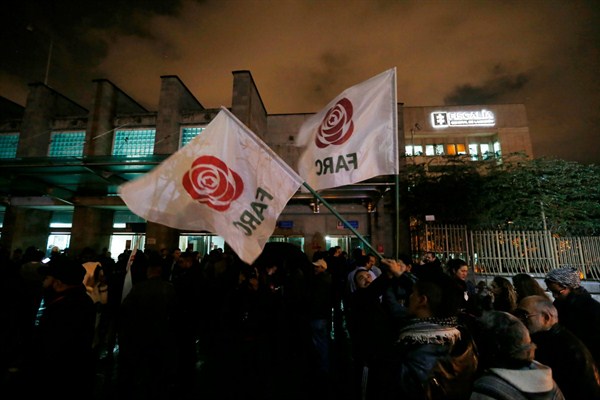On April 9, Colombia’s government fired the head of the Colombia in Peace Fund, a $500 million, donor-financed entity tasked with supporting post-conflict programs tied to the country’s 2016 peace accord with the Marxist guerrilla group known as the FARC. The move came after donor countries, including Norway, Sweden and Switzerland, complained to the government about funding delays and a lack of transparency. The implementation of the Colombian peace agreement has faced a number of stumbling blocks so far. In an email interview, Adam Isacson, a senior associate for regional security policy at the Washington Office on Latin America, discusses those challenges to peace and why now is not the time for the international community to “lose interest or wander off.”
WPR: With the first phase of the peace accord ostensibly completed, what is the scorecard so far on the deal’s implementation and effectiveness?
Adam Isacson: I’d give implementation and effectiveness a C-minus. There’s a big gap between devising a perfect plan and actually implementing that plan. The peace accord with the FARC makes so many promises and commitments—558, according to Notre Dame’s Kroc Institute—that implementing it would require a large-scale mobilization of political will and resources not unlike a domestic Marshall Plan. After nearly a year and a half, this hasn’t happened.

